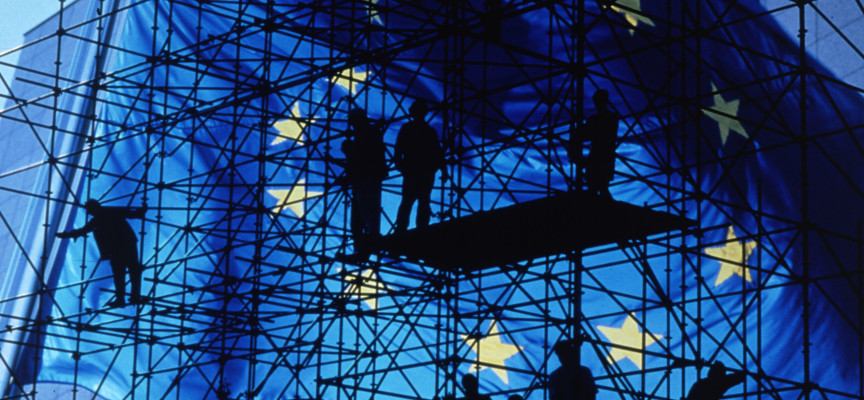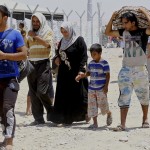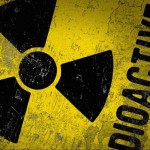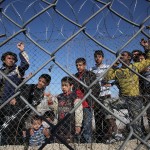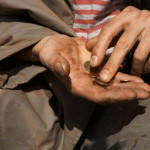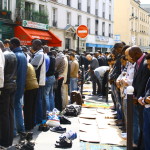One month before the end of the semester of Italian Presidency of the Council of the European Union, the Italian Catholic Action proposed a reflection on the changes in the international context in which the Union itself is active. While reconstructing the evolution and geopolitical direction of the Union, the director of the journal of international politics “Limes”, Lucio Caracciolo, analyses the “ideological crisis” of Europeanism based on those ideal tensions that aimed to “overcome” the national State. The Europeanist sensibility evoked by Caracciolo is typical of the “avant-gardes” that can pave the way to European peoples, in order to overcome “their geopolitical representations”, and converge into a single State. This is where we detect the ideological crisis: Europeanism does not hold up in the face of the political emergency situations in the East. The eruption of (armed) circumstances of instability is very likely the manifestation of different, and even opposing, geopolitical visions that the Union cannot synthesize. The Ukrainian affair, in fact, is the central political problem through which European identity and history, on the one hand, and geostrategic future, on the other hand, converge. The EU is to compete with two reasons: the Russian reason, which is about the historical inconsistency of the Ukrainian State, as a union of parts of Poland, Russia, and Hungary; and the Atlantic reason, which is about the preservation of territorial and sovereign integrity of the States that belong to the “European space”.
In addition to the lacking political force in foreign affairs of the EU, the weak activity in this case, may be explained by the embarrassment that comes from supporting its own integrity on the basis of a national identity which is indeed very weak. The changes in the international context urge the Union to verify its own identity. The reference to the fundamental reason that prompted European governments to establish the Union, i.e., the search for peace, is not sufficient. Giuliano Amato, an internationally renown politician and jurist, insists on this point, with a reflection focused on the set of original values, and he argues that institutions cannot be built by an architect in a field, vice-versa they depend and stand up on a specific humus. But even this is not enough in these times.
The EU is not a State and cannot be a State now, just because of its original identity. My generation, to use an IT metaphor, could think of the EU not as a powerful computer, but as a fast server. Peace, in the “space” of the Union, is assumed. If anything, it is difficult to promote it outside: spreading or keeping it is considered as other people’s business. This tendency to extricate themselves from any foreign policy decision-making process is the effect of the weakness and mediocrity of EU foreign policy, not of the Europeanist idea or the ideology that underlies it. Msgr. Alain Paul Lebeaupin, Apostolic Nuncio of the Holy See to the EU, considers the Second World War as a traumatic event which founded a Union “guardian of peace.” Even more interesting is his passage on an intuition of St. John Paul II – the EU must go ahead by breathing from both lungs, the West and the East. This is the real issue that allows to understand the foreign action of the Union in the international changing context. Lebeaupin argues that in this perspective, the visit of Pope Francis to Turkey is far more important than his visit to Strasbourg. He also argues that between the Union and the Catholic Church there is a wound that results from the failed elaboration of the preamble to the constitutional project that fell through in 2009. This wound however should be marginalized in consideration of the current events. The EU must go back to the key issues: the economy, the fight against financial occult powers, the support to the middle class, the reconstruction of the “powers of society” that are “crucial to social harmony.” By doing so, it would certainly build a “European space” that would still make sense and be central to human progress.
A un mese dalla fine del semestre italiano di presidenza del Consiglio dell’Unione europea, l’Azione cattolica italiana ha proposto una riflessione sul mutamento del contesto internazionale in cui la stessa Unione si muove. Il direttore della rivista di politica internazionale “Limes”, Lucio Caracciolo, ricostruendo l’evoluzione e il senso geopolitico dell’Ue, parla di “crisi ideologica” dell’europeismo basato su quelle tensioni ideali che miravano al “superamento” dello Stato nazionale. Il senso europeista evocato da Caracciolo è quello delle “avanguardie” capaci di preparare la strada ai popoli europei, per superare le “proprie rappresentazioni geopolitiche”, e convergere in unico Stato. Proprio in questo si osserverebbe la crisi ideologica: l’europeismo non regge di fronte alle emergenze politiche a Oriente. L’irrompere di situazioni d’instabilità, armate, sarebbe la manifestazione di visioni geopolitiche diverse, ed anche contrapposte, che l’Unione non riesce a sintetizzare. L’affare ucraino è in effetti il nodo politico centrale attraverso il quale convergono identità e storia europee da una parte e futuro geostrategico dall’altra. L’Ue si trova a misurarsi con due ragioni: quella russa, dell’inconsistenza storica dello Stato ucraino, unione di pezzi di Polonia, Russia e Ungheria; quella atlantica, della salvaguardia dell’integrità territoriale e sovrana degli Stati che afferiscono allo “spazio europeo”.
Oltre alla carente forza politica negli affari esteri dell’Ue, la debole attività in questo caso può spiegarsi con l’imbarazzo che deriva dal sostenere l’integrità sulla base di un’identità nazionale in effetti molto debole. Il mutamento del contesto internazionale spinge l’Unione a verificare la propria identità. Non può bastare il richiamo alla ragione fondamentale che spinse i governi europei a costituire l’Unione, cioè la ricerca della pace. Giuliano Amato, politico e giurista di fama internazionale, insiste sul punto, consegnando una riflessione incentrata sull’insieme valoriale originario e sostenendo che le istituzioni non possono essere costruite da un architetto su un campo, ma dipendono e stanno in piedi su un humus specifico. Ma anche questo non può bastare nell’epoca contemporanea.
L’Ue non è uno Stato e non può esserlo ora, proprio in virtù della sua originale identità. La mia generazione, per usare una metafora informatica, potrebbe pensarla non come un computer potente, ma come un server veloce. La pace, nello “spazio” dell’Unione, è presupposta. Semmai ci sono difficoltà a propugnarla al di fuori: diffonderla o mantenerla è considerato affare altrui. Questa tendenza a estromettersi dalle decisioni in politica estera è l’effetto della debolezza e mediocrità della politica estera dell’Unione, non del pensiero europeista o delle ideologie che lo sospingono. Mons. Alain Paul Lebeaupin, nunzio apostolico della Santa Sede presso l’Ue, parte dalla considerazione della Seconda guerra mondiale come evento traumatico e fondante un’Unione “custode della pace”; ma più interessante è il passaggio sull’intuizione di san Giovanni Paolo II: l’Ue deve procedere respirando da entrambi i polmoni, l’Occidente e l’Oriente. Questo è il vero tema che consente di capire l’azione estera dell’Unione nel contesto internazionale in mutamento. Lebeaupin sostiene che in quest’ottica, è molto più importante la visita di papa Francesco in Turchia, piuttosto che quella a Strasburgo. Sostiene inoltre che tra l’Unione e la Chiesa cattolica c’è una ferita che deriva dalla mancata elaborazione del preambolo al progetto costituzionale naufragato nel 2009. Ferita però da marginalizzare rispetto all’attualità. L’Ue deve tornare alle questioni fondamentali: economia, lotta ai poteri occulti finanziari, sostenere la classe media, ricostruire i “poteri della società” che sono “fondamentali per l’armonia sociale”. Così certamente costruirebbe uno “spazio europeo” ancora sensato e centrale per il progresso umano.
Paolo Bonini
Latest posts by Paolo Bonini (see all)
- A step ahead - 6 gennaio 2015
- Europeanism does not hold up - 4 dicembre 2014

